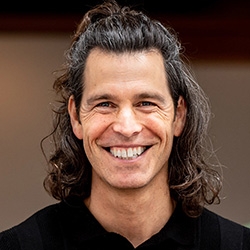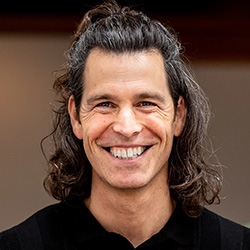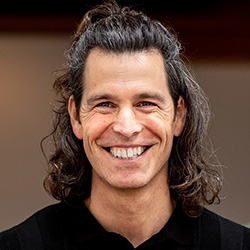
Search Results: dialogue
-
If role play, hearing conversations modeled and dialogue practice is how you learn, this is the telecourse recording for you! Learn the art of entering, staying in and bowing out of the conversational dance using real-life situations.
-
Dialogue is a life-changing, heart-opening experience. It’s collaboration instead of compromise. Join Miki Kashtan for a practical, step-by-step framework to help you understand how a community develops, how to maintain or repair a community, and how this unique process creatively supports you and each member of your community in getting things done.
-
One of the key challenges of engaging in dialogue in the workplace is that – while we are all equally human – the norms of the workplace make honest and open dialogue challenging, especially when power differences are present. This course offers a plethora of considerations and tips designed to allow you to humanize your relationships at work, focus on your common goals, and bring more collaboration and goodwill to your team – and beyond.
-
A chosen, interdependent world… In most cases, that's sure not the world we live in today, is it. But it could be the world we live in tomorrow. And you can choose to be part of bringing that better world to life – to be part of a gradual, joyful transformation – simply by using the dynamic, living power of Dialogue.
-
The less blame and criticism, the easier it is for others to hear us. From this perspective, it’s in our best interest to come from curiosity and care. This way differences can bring us together and help us know one another. The more mutual understanding, the easier it is to work together and find creative solutions. Read on for more on this, with a story about how a black man inspired 200 members of the KKK to leave the organization.
-
Many families are far more complex and varied than they used to be. In this recording, Miki works with participants, focusing on specific challenges they’re facing with family members. Listen In.
-
Effective and connected dialogue requires significant self-awareness, mindfulness, and skill. You can focus on any of these six areas that most often escape your awareness: anchoring and staying grounded; boundaries; thoughts and beliefs; stuckness or attachment; feelings and needs; and requests. Read on for a list of questions to help you focus on how to do that.
-
If you want a better connection it's crucial to be mindful about how your communication affects your partner. This means noticing and keeping eye contact, observing body language, and checking for their reactions. You can also share in small increments, check in before sharing vulnerable thoughts, and express what you notice. Give yourself empathy when you notice that you want to be right more than you’re wanting to be connected.
-
During this session, Giorgos will walk you through a series of short, meditative practices and exercises designed to help you practice noticing, experiencing, and bringing shame to light — transforming it from a burden to a playful fellow as well as a portal to self-knowledge and internal freedom. You'll discover how the deep power of human connectedness can dilute the fogginess of sensitive issues, bringing them higher into your consciousness, and enabling the flow of life to pass right through them!
-
When supporting someone with less privilege, first check with them how you can support. If you're reacting more strongly to their undesirable experience than they are, this then shifts the dynamic so that they're setting aside what they want to attend to your feelings and needs - this may become work that they didn't sign up for. Read on for what to do instead to support more equity.
-
A chosen, interdependent world… In most cases, that's sure not the world we live in today, is it. But it could be the world we live in tomorrow. And you can choose to be part of bringing that better world to life – to be part of a gradual, joyful transformation – simply by using the dynamic, living power of Dialogue.
-
In this snippet from Duke Duchscherer's course, Restorative Dialogues: Transforming Conflict, Building Community Resilience, he shares a structured approach for conflict resolution or communication facilitation. It involves a facilitator guiding a conversation between two parties in conflict. The process begins with one party expressing their perspective while the other listens actively. The facilitator then prompts the listener to paraphrase what they heard, ensuring mutual understanding. This cycle continues until both parties feel heard. Subsequently, the facilitator encourages them to discuss potential solutions collaboratively. Once both sides are satisfied, the session concludes, with participants potentially swapping roles for further practice. The aim is for everyone involved to gain experience in effective communication and conflict resolution.
-
In Yoram’s 2021 course, participants delved deeper into their NVC practice so they were better prepared to meet conflict head-on. In this 5-session series, Yoram explores: the power of empathy to change the trajectory of heated conversations embracing the internal conflicts of the different parts of ourselves how to approach differing views peacefully the use of NVC to help let go of judgments how to confidently ask for what you want
-
-
-
When we're judging we're less able to access both what we care about and constructive next actions. Instead, create more internal space and agency starting with connecting to your feelings and needs; then feel your grief or disappointment; followed by getting curious about the other party's needs and context -- and then based on collective needs and the long term effects make requests or take aligned action that works for all.
-
Reactivity can harm relationships, but there are three keys to prevent or dissolve reactivity: discernment (recognize reactivity and interrupting it), transparency (express feelings and wants honestly and making simple requests), support for conscious connection (remind ourselves to practice prioritizing connection in interactions). Practice these to maintain fulfilling relationships and reduce impacts caused by reactivity.
-
- Learn how to use empathy to dissolve conflict
- Deepen your NVC skills to help let go of judgments
- Explore approaches for asking for what you want
- Listen to the conflict within yourself
-
- Discern what is preventing your communication style from being effective
- Create a communication style that works
- Resolve everyday conflicts and misunderstandings
- Create a deeper sense of connection, trust, and cooperation
- Heal old wounds between you and others, as well as within yourself
- Be the leader and contributor you want to be in any situation
-
In this audio recording, Miki demonstrates how to stay in a dialogue when you don't trust someone's "yes," how to equalize power between people and how to allow space for others to say "no" to our requests.



















